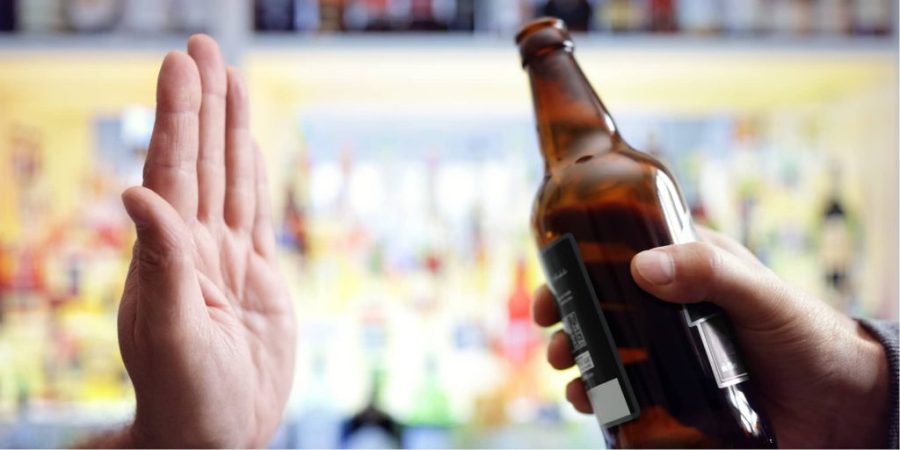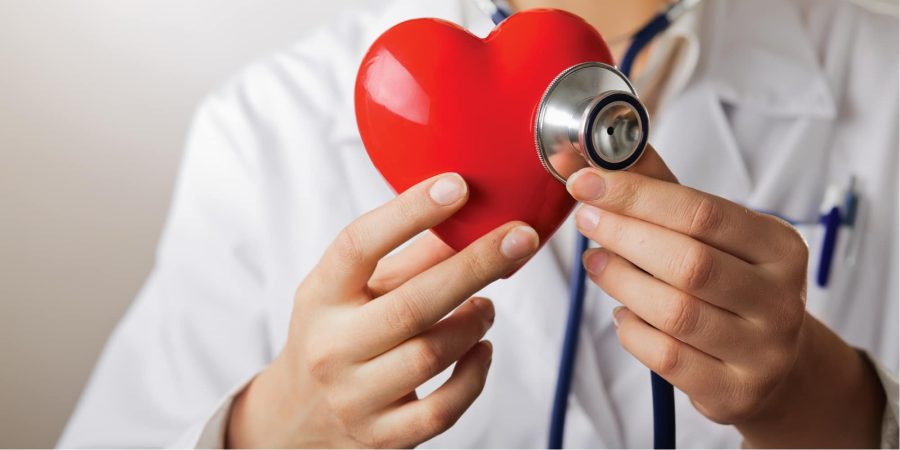
The benefits of quitting drinking are easy to overlook because alcohol can provide us with many immediate, short-term benefits. It can help you loosen up and speak to people you don’t know very well at a party, it can help you forget about problems you may be facing, and it can help you cope with life challenges that you have very little control over.
Unfortunately, those benefits are very short-lived. Alcohol can stay in your blood and affect your body longer than you think, especially if you develop alcohol dependence.
Whether you drink occasionally and want to give a dry January a try or you’re looking to make a more permanent change to your drinking habits, there are many physical and mental health benefits that you’ll enjoy when you put down that drink.
Table of Contents
1. Increased Heart Health


Alcohol is very hard on your heart. You can easily feel the effects alcohol has on your heart when you lay down after an evening of drinking. For example, it’s not uncommon for it to feel like your heart is thumping out of your chest.
Heavy drinkers are susceptible to heart problems. Those who consume more than 14 drinks per week are twice as likely to experience heart failure. Those who consume fewer drinks can still put themselves at a higher risk of heart disease.
The fewer alcoholic beverages you enjoy, the healthier your heart is likely to be.
2. Decreased Risk of Cancer
Not only can drinking increase your chances of experiencing heart problems, it can also increase the likelihood of developing different types of cancers.
Most people understand that excessive drinking can cause liver damage, which also includes liver cancer, but additional areas where you face increased risk to develop cancer include:
- Mouth
- Throat
- Voice box
- Esophagus
- Colon
- Rectum
- Breast
Your risk of cancer increases the more you drink because the acetaldehyde your body creates after breaking down the alcohol can damage your DNA. Your DNA controls normal cell growth, but when damaged, it can allow cancerous cells to grow out of control. When you quit drinking, your DNA can be repaired, lessening your chances of developing cancer.
3. Your Body Will Feel Better
There are a lot of technical things that can be said about the benefits of quitting drinking in regards to your physical health, but at the end of the day, you’ll just feel better!
Alcohol is hard on the body. In order to process it, your body has to go into overdrive, which means your liver is trying to metabolize it, your brain is trying to re-calibrate itself, and your heart pumps at an uncomfortable speed. When your body doesn’t have to worry about the barrage of toxic chemicals, it can focus on other things. Those who quit drinking report a higher energy level, clarity of mind, an increased ability to focus, and other advantages.
4. You May Lose Weight
Gaining weight can be uncomfortable, but it can also be unhealthy in some circumstances, especially if the additional weight you’re carrying around is due to the alcohol you drink.
It is common for those who drink—and especially heavy drinkers—to gain weight. It also makes it much harder to lose weight.
It’s true that alcohol contains empty calories, which causes your body to store alcohol as sugar, which translates to an increased amount of fat on the body. It’s also easy to underestimate the calories you consume while drinking. Not to mention, with reduced inhibitions, you’re likely to eat more and make worse dietary choices.
5. No More Moral Hangovers
One of the biggest of benefits of quitting drinking is leaving behind hangovers. And while dealing with a hangover the next day is no walk in the park, most who drink don’t deal with only physical symptoms. It’s common for those who drink to experience moral hangovers as well. But what does that mean, exactly?
Many who drink do things they regret while under the influence of alcohol. When you stop drinking, there’s no more need to feel regret over spending so much money on your drink of choice, what you said to someone you love, or legal trouble related to your drinking.
6. Increase in Rational Decision Making and Impulse Control
Moral hangovers occur because there’s a steep decrease in decision making and impulse control while you’re drinking. Over time, these effects can be felt between drinks, even when you’re able to make decisions in some areas of your life, such as work.
Alcohol affects the frontal lobe, and the effects of alcohol can continue to impact your executive decision making abilities even after you first quit. However, over time, your frontal lobe will regenerate, and you’ll be able to make better decisions in all areas of your life.
7. Develop a Clearer Picture of Your Mental Health
There’s no doubt that alcohol can affect your mental health, but it’s a bit of a chicken-and-the-egg situation. For example, it can be difficult to figure out if you’re depressed so you drink, or you’ve become depressed due to excessive drinking.
The only way to know for sure is to live an alcohol-free life. Alcohol can cause feelings of depression and anxiety that may disappear on their own when you quit. If they don’t, or if your feelings get worse, it’s a good indication that you also have a mental illness.
8. A More Stable Mood


Whether you’re experiencing mental health issues or not, you’re likely to experience a change in mood. After a glass of wine, you may find that you’re more agreeable and open to a good time. After heavy drinking, you may experience negative changes to your mood. It isn’t uncommon for heavy drinkers to become:
- Angry very easily
- Violent
- Overly affectionate
- Dangerously impulsive
Your mood can change on a dime, and it can affect important relationships, causing people to distance themselves from you when they know you’re drinking. A big benefit of quitting drinking is leaving all of that behind.
9. Better Sleep
It’s ironic that many people drink a glass of wine before bed to help them to sleep because it doesn’t help you sleep at all.
Drinking alcohol may help you fall asleep faster, but quality of sleep trumps quantity of sleep. Drinking increases delta activity and alpha activity simultaneously, which prevents restorative sleep. It blocks REM sleep—which is the most restorative type of sleep. More than that, it can interrupt your circadian rhythm, aggravate breathing problems, and make you take more trips to the bathroom, which all leave you feeling even more tired when you wake up. Restful sleep is much easier to come by when you haven’t been drinking alcohol.
10. More Control Over Your Life
Alcohol consumption can take over your life. Reducing or eliminating alcohol from your daily life can provide you with a sense of accomplishment. Without the exhaustion, hangovers, and guilt that come with drinking, you can focus on your goals and dreams.
If you think you have an alcohol problem, it’s important to consider a professional alcohol detox program, as the symptoms of alcohol withdrawal can be severe. Call the Vance Johnson Recovery Center at 888-828-2623 or fill out our online form to speak with a member of our team. We would be happy to tell you more about our alcohol detox program, our inpatient and residential programs, and exactly how we can help you reap the benefits of quitting drinking today.
The post 10 Mental and Physical Benefits of Quitting Drinking appeared first on Vance Johnson Recovery Center.
Source
Original Author: Vance Johnson Recovery Center

